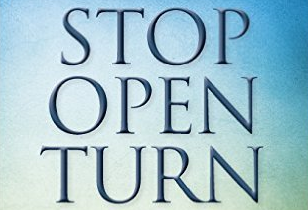“Listening is the first act of love”
Jennifer Austin Leigh, PsyD, is an award winning author, expert on raising teens, withdrawal coach and a benzodiazepine withdrawal survivor herself. Now, she’s focusing on her spiritual work with people, working with small groups.
Dr. Leigh wants to help people learn to love, and she says, “Listening is the first act of love.” Listening has been a passion of hers for a decade now, ever since she co-wrote her first listening skills book. She’s also a regular contributor on our site, sharing her expert knowledge with the Addiction Blog audience.
Join us here to learn why the book, “Stop. Open. Listen.” should be read not only by people recovering from addiction, but by anyone who can get their hands on it. You can find “Stop. Open. Listen.” on Amazon and add it to your book collection. Then, we invite your comments, questions, and feedback in the section below. In fact, we try to respond to all comments personally!
SKILL 1: STOP – Listening process
Who will find this book useful? Let’s ask a few questions first.
- Do you want people to like you or be impressed by you?
- Do you tend to turn conversations to be about you?
- Do you want to tell people what you think, believe or feel?
- Do you plan what to say before others finish talking?
- Do you interrupt people unconsciously?
If you can answer some of these questions with a YES, as I did, you need some listening skills improvement and exercises. As you read through the “STOP” part of the book, you realize that it’s not talking that will make you likeable and impressive. Instead, it’s being loving and respectful towards others, and listening is a good way to achieve that.
The punchline of this section of Dr. Leigh’s book that summarizes the first skill that you need to master in listening is by Simon Sinek and goes like this: “There is a difference between listening and waiting for your turn to speak.”
We particularly like the way that Dr. Leigh blends personal experience with life skills throughout the read. She takes you through a brief time-line of her growing up and developing character. You see how she passed through addiction and recovery, dating, and friendship. And then you can evaluate where you are in your own listening skills and learn some interventions.
So, what are the lessons learned from the “STOP” part of this book?
1. Shut up and listen!
2. Don’t “should” on people!
3. Work on what is it that makes you want to be center stage and talk too much!
SKILL 2: OPEN – Grow love through deflation of ego
Part 2 or “Open” of Dr. Leigh’s book teaches a practice of love and peace in situations when confronted with opinions or lifestyles that we don’t agree with. Those are the people in your life that trigger your resentments, anger, fear, doubts, and anxiety.
Q: How do you resolve disagreement without closing people out and ending up with very few people in your life? What is being “OPEN” all about?
A: Basically, being OPEN is about deflation of ego while practising acceptance.
In this section, Dr. Leigh leads us through the principles which lay beneath REAL communication. She explains these principles in simple, practicable, and meaningful ways…so that you can change your life!
SKILL 3: TURN – Towards past traumas and then towards others
As E.E.Cummings put it, “We do not believe in ourselves until someone else reveals that something deep inside us is valuable, worth listening to…”. In this section, Dr. Leigh reveals to us that the point of turning towards your own past traumas is so that you can turn towards other people. This is another act that helps grow and nurture love.
She teaches us to ask ourselves difficult questions, and to face the reasons why we avoid certain people or issues. The “TURN” part of this book explains that trauma can change the way our brains function. Trauma grows the neuronal connectivity in the fear regions of the brain, and reduces the rational and logical functioning brain areas. Such changes influence our future actions and our ability to be present, vulnerable and open in order to listen to others.
The point Dr. Leigh makes is that to be able to consciously change your reaction to fear of people and problems, you need to face issues and resolve them.
Understand and improve your listening skills
This short, but compressed and impactful book can help you reflect on your own listening and communicating practices. “Stop. Open. Turn.” itself is a book that will not only speak to you, but will help you listen to yourself. Dr. Leigh also features quizzes and journaling opportunities throughout the book that you can use. Practical, easy-to-read, and hard to put down…this book is a MUST in the library of anyone looking to grow interpersonally.
Dr. Leigh ends her book by giving you the needed tools to self examine and listen to yourself. The “Listening Landmines Quiz” and the pages left for “A Month Of Listening” will help you better communicate with yourself and track your listening improvement practices throughout a month. What a tool!
“Stop. Open. Turn.” questions
I learned a lot from reading Dr. Leigh’s book. Now, in the spirit of listening, I invite you to share your thoughts, comments, and questions in the section below. We try to read each one carefully and reply promptly and personally.









Related Posts